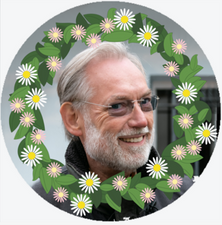KunstBewusst: Integration, Flow and Benjamin Patterson – Towards a Pedagogy of Performance
In the organizer's words:
What is it about?
Benjamin Patterson was a staunch opponent of segregation in the USA. In order to change perception, his aesthetic practice combined visual phenomena with forms of knowledge production. This practice not only encompassed ideologies of art as everyday life, but also explored the pedagogical potential of art. Patterson made use of a variety of art forms, including experimental music and Fluxus, happenings, intermedia, performance and conceptual art. It was in the field of performance that he made the greatest attempts to combine the visual with the conceptual. In my lecture I will examine how Patterson's sensibility developed within and outside a growing network in the 1950s and 1960s. His commitment to desegregation resulted not only from the political and social circumstances of his time, but also from his radical redefinition of art as an instrument of perceptual education or as a learning mechanism that can transform society on an individual and collective level.
Who is our guest?
Dr. julia elizabeth neal is an art historian specializing in African American, modern and contemporary American art. She has been an assistant professor in the Department of Art History at the University of Michigan since 2023. Previously, she taught at Spelman College and Georgia State University. Her research explores the relationship between identity politics, transnationalism, and visual, conceptual, and sonic experimentation. She is currently working on her first book, which explores the conceptual aesthetics and pedagogical practice of Pittsburgh-based multidisciplinary artist Ben Patterson, a member of the Fluxus movement. Her publications include articles on abstraction, performance, interdisciplinarity, and critical historiography. Her research has been generously supported by grants from the Getty Research Institute, the Ford Foundation, the Terra Foundation for American Art, the German-American Fulbright Commission, and the University of Texas at Austin.
> English version below
What is it about?
Benjamin Patterson was a staunch integrationist. His aesthetic praxis merged visual phenomena with forms of knowledge production as a strategy to overhaul perception. This practice, which embraced not only ideologies of art as everyday life but also its pedagogical potential, drew upon a multiplicity of artmaking modalities such as experimental music and Fluxus, to happenings, intermedia, performance, and conceptual art. Yet it is through performance that Patterson mounted his greatest attempts at integrating the visual with the conceptual. By considering how his sensibility developed within and beyond an increasing network between the 1950s to 1960s, I argue that Patterson's cultivation of an integrationist sensibility is a direct outgrowth of his political and social circumstances and are consequential to his radical redefinition of art as perception education tools, or mechanisms for learning that possess the potential to transform society at the level of the individual and the collective.
Who is our guest?
julia elizabeth neal is a scholar of African American, modern and contemporary US art. In 2023, she joined the Department of the History of Art at the University of Michigan as an assistant professor. Prior to Michigan, neal lectured at Spelman College and Georgia State University. Her research considers the relationship between emergent politics of identity and transnationalism to visual, conceptual, and sonic, experimentation. She is presently working on her first book, which explores the conceptual aesthetic and pedagogical praxis of Ben Patterson, a Pittsburgh-born multidisciplinary artist of international renown and associated with Fluxus. Her publications record includes articles on abstraction, performance, interdisciplinarity, and critical historiography. Her research has been generously supported through grants and fellowships with the Getty Research Institute, the Ford Foundation, the Terra Foundation for American Art, the German-American Fulbright Commission, and the University of Texas at Austin.
This content has been machine translated.Price information:
Members free of charge. Guests pay €4, students €2













